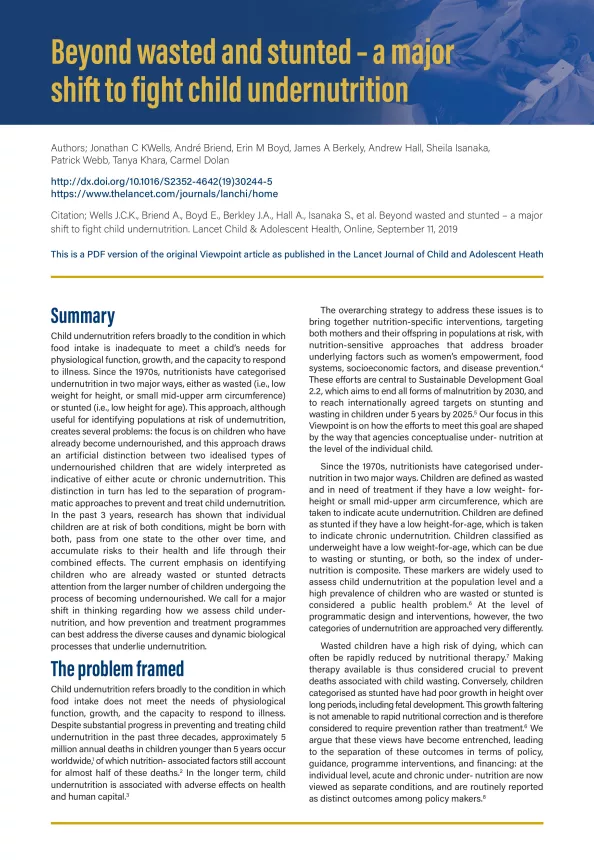Beyond wasted and stunted—a major shift to fight child undernutrition
Publication details
Abstract
Child undernutrition refers broadly to the condition in which food intake is inadequate to meet a child’s needs for physiological function, growth, and the capacity to respond to illness. Since the 1970s, nutritionists have categorised undernutrition in two major ways, either as wasted (i.e., low weight for height, or small mid-upper arm circumference) or stunted (i.e., low height for age). This approach, although useful for identifying populations at risk of undernutrition, creates several problems: the focus is on children who have already become undernourished, and this approach draws an artificial distinction between two idealised types of undernourished children that are widely interpreted as indicative of either acute or chronic undernutrition. This distinction in turn has led to the separation of programmatic approaches to prevent and treat child undernutrition. In the past 3 years, research has shown that individual children are at risk of both conditions, might be born with both, pass from one state to the other over time, and accumulate risks to their health and life through their combined effects. The current emphasis on identifying children who are already wasted or stunted detracts attention from the larger number of children undergoing the process of becoming undernourished. We call for a major shift in thinking regarding how we assess child undernutrition, and how prevention and treatment programmes can best address the diverse causes and dynamic biological processes that underlie undernutrition.

Cite this publication
Reference this page
Sadler K, James PT, Bhutta ZA, Briend A, Isanaka S, Mertens A, Myatt M, O'Brien KS, Webb P, Khara T, Wells JC. How Can Nutrition Research Better Reflect the Relationship Between Wasting and Stunting in Children? Learnings from the Wasting and Stunting Project. J Nutr. 2023 Jan 14;152(12):2645-2651. doi: 10.1093/jn/nxac091. PMID: 35687496; PMCID: PMC9839990.